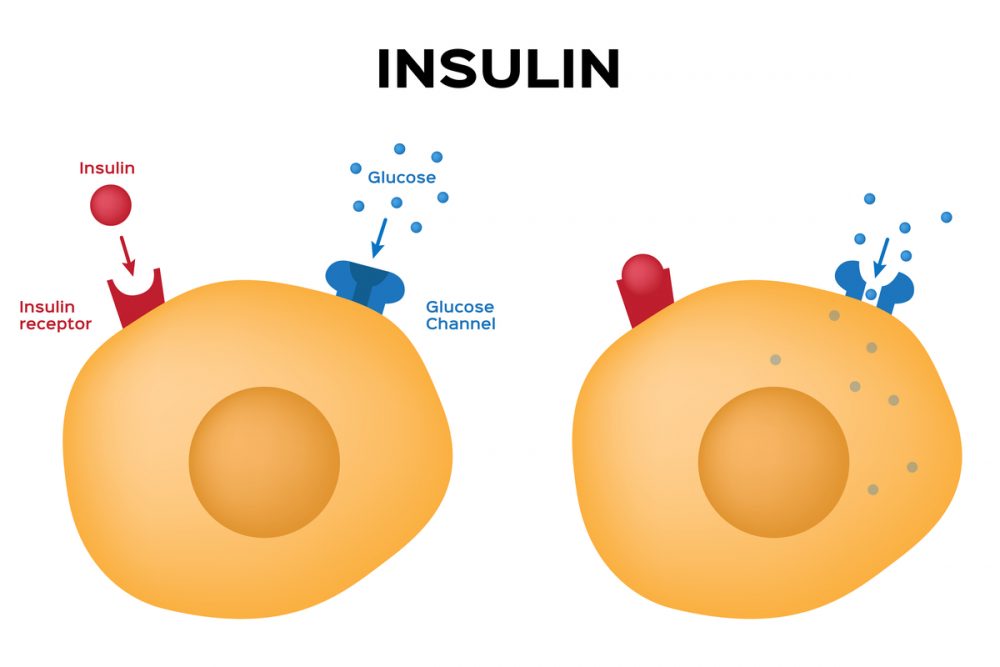Polycystic Ovary Syndrome (PCOS) is one of the most common hormonal disorders among women of reproductive age. While its name might suggest that the condition is primarily about ovarian cysts, the symptoms and effects of PCOS go far beyond that. This complex syndrome impacts hormonal balance, metabolism, and overall health, often manifesting through a wide range of signs that can vary from person to person.
@thenewlifechannel♬ original sound – The New Life Channel
If you’ve been struggling with unexplained symptoms, this blog outlines the 13 most common signs of PCOS and how understanding its root cause—insulin resistance—can help you take control of your health.
1. Hair Loss Similar to Male Pattern Hair Loss
Hair thinning or loss, particularly around the crown or temples, is a common symptom of PCOS. This happens because of elevated androgen levels (male hormones) in women, which can interfere with normal hair growth cycles.
2. Belly Fat
Excess abdominal fat is one of the hallmark signs of PCOS. Women with PCOS often struggle with weight gain, particularly around the midsection, due to hormonal imbalances and insulin resistance.
3. Adult Acne
Persistent acne, particularly along the jawline, chin, and neck, is often linked to PCOS. Hormonal fluctuations increase oil production, leading to clogged pores and frequent breakouts.
4. Facial Hair
Unwanted facial hair growth, known as hirsutism, is another common symptom caused by elevated androgen levels. This hair typically appears on the chin, upper lip, or cheeks.
5. Constant Stress, Confusion, and Depression
PCOS can take a toll on your mental health. Hormonal imbalances often contribute to feelings of anxiety, stress, and depression, as well as brain fog or difficulty concentrating.
6. Constant Fatigue
Feeling tired all the time, even after a full night’s sleep, is a frequent complaint among women with PCOS. This chronic fatigue is often linked to insulin resistance and disrupted hormone levels.
7. Irregular Periods
One of the most recognizable signs of PCOS is irregular or absent menstrual cycles. Women with PCOS may experience fewer than eight periods a year, extremely heavy periods, or unpredictable cycles.
8. Pelvic Pain
Pelvic discomfort or pain, particularly during menstruation, can be a sign of PCOS. This pain may stem from ovarian cysts, hormonal imbalances, or inflammation associated with the condition.
9. Difficulty Conceiving
PCOS is one of the leading causes of infertility in women. The hormonal disruptions associated with PCOS can prevent ovulation, making it harder to conceive without medical intervention.
10. Skin Pigmentation
Dark patches of skin, particularly around the neck, armpits, or groin, are often associated with PCOS. This condition, known as acanthosis nigricans, is linked to insulin resistance and high insulin levels.
11. Skin Tags
Small, benign growths called skin tags often develop on the neck, underarms, or other areas of the body in women with PCOS. These tags are also associated with insulin resistance.
12. Joint Pain
While not as commonly discussed, joint pain can be a symptom of PCOS. Chronic inflammation associated with the condition may contribute to discomfort in the joints over time.
13. Low Sex Drive
Hormonal imbalances caused by PCOS can result in a decreased libido. Stress, fatigue, and other PCOS-related symptoms may further contribute to a reduced interest in intimacy.
The Root Cause: Insulin Resistance

One of the primary underlying factors in PCOS is insulin resistance, a condition where the body’s cells don’t respond effectively to insulin. This leads to elevated blood sugar and insulin levels, which can exacerbate many of the symptoms listed above.
Insulin resistance plays a significant role in:
- Increasing androgen production, leading to hair loss, facial hair, and acne
- Promoting fat storage, particularly in the belly
- Disrupting hormone regulation, which affects ovulation and menstrual cycles
Addressing insulin resistance is crucial for managing PCOS and its symptoms effectively. To learn more about insulin resistance, I encourage that you read my blog on “The Truth about Insulin and Its Affects on The Body.”
Next Steps

PCOS is a complex condition with a wide range of symptoms, but understanding its root cause—insulin resistance—can empower you to take actionable steps toward managing your health.
If you’re looking for a natural, effective way to address insulin resistance and improve your overall well-being, consider learning more about intermittent fasting. This powerful approach not only helps regulate hormones but also promotes sustainable weight loss and better metabolic health.
For more insights and guidance, check out my blog: How Intermittent Fasting Helps You Lose Weight: A Complete Guide. By addressing insulin resistance, you can take control of your PCOS symptoms and pave the way for a healthier, more balanced life.
Take the first step today—your health and well-being are worth it.
Your Thoughts Matter




